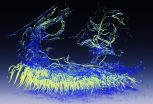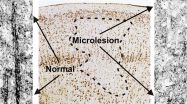(Press-News.org) Recent research at Griffith University has found that personality is more important than intelligence when it comes to success in education.
Dr Arthur Poropat from Griffith's School of Applied Psychology has conducted the largest ever reviews of personality and academic performance. He based these reviews on the fundamental personality factors (Conscientiousness, Openness, Agreeableness, Emotional Stability, and Extraversion) and found Conscientiousness and Openness have the biggest influence on academic success.
The results have been published in the journal Learning and Individual Differences.
Dr Poropat says educational institutions need to focus less upon intelligence and instead, pay more attention to each student's personality.
"With respect to learning, personality is more useful than intelligence for guiding both students and teachers," Dr Poropat said.
"In practical terms, the amount of effort students are prepared to put in, and where that effort is focused, is at least as important as whether the students are smart.
"And a student with the most helpful personality will score a full grade higher than an average student in this regard."
In Dr Poropat's research, a student's assessment of their own personality is as useful for predicting university success as intelligence rankings.
However, when people who know the student well provide the personality rating, it is nearly four times more accurate for predicting grades.
Dr Poropat said understanding how personality impacts on academic achievement is a vital when it comes to helping students reach future success.
"Intelligence tests have always been closely linked with education and grades and therefore relied upon to predict who would do well," Dr Poropat said.
"The impact of personality on study is genuinely surprising for educational researchers, and for anyone who thinks they did well at school because they are 'smart'."
Previous studies have shown that students who think they are smart often stop trying and their performance declines over time, while those who consider themselves hard workers get progressively better.
Dr Poropat said the best news for students is that it's possible to develop the most important personality traits linked with academic success.
"Personality does change, and some educators have trained aspects of students' Conscientiousness and Openness, leading to greater learning capacity.
"By contrast, there is little evidence that intelligence can be 'taught', despite the popularity of brain-training apps."
INFORMATION:
Nanyang Technological University (NTU Singapore) scientists have developed a smart window which can darken or brighten without the need for an external power source.
This unique self-tinting window requires zero electricity to operate and is also a rechargeable battery. The window's stored energy can be used for other purposes, such as to light up low-powered electronics like a light emitting diode (LED).
Currently, the window solutions in the market are either using permanent tinting which cannot brighten at night or are windows that can change its light transmission ...
A team of biologists has identified a set of nerve cells in desert locusts that bring about 'gang-like' gregarious behaviour when they are forced into a crowd.
Dr Swidbert Ott from the University of Leicester's Department of Biology, working with Dr Steve Rogers at the University of Sydney, Australia, has published a study that reveals how newly identified nerve cells in locusts produce the neurochemical serotonin to initiate changes in their behaviour and lifestyle.
The findings demonstrate the importance of individual history for understanding how brain chemicals ...
Messier 47 is located approximately 1600 light-years from Earth, in the constellation of Puppis (the poop deck of the mythological ship Argo). It was first noticed some time before 1654 by Italian astronomer Giovanni Battista Hodierna and was later independently discovered by Charles Messier himself, who apparently had no knowledge of Hodierna's earlier observation.
Although it is bright and easy to see, Messier 47 is one of the least densely populated open clusters. Only around 50 stars are visible in a region about 12 light-years across, compared to other similar objects ...
Treating bacterial infections with antibiotics is becoming increasingly difficult as bacteria develop resistance not only to the antibiotics being used against them, but also to ones they have never encountered before. By analyzing genetic and phenotypic changes in antibiotic-resistant strains of E. coli, researchers at the RIKEN Quantitative Biology Center (QBiC) in Japan have revealed a common set of features that appear to be responsible for the development of resistance to several types of antibiotics.
The study published in Nature Communications shows that resistance ...
Fireflies used rapid light flashes to communicate. This "bioluminescence" is an intriguing phenomenon that has many potential applications, from drug testing and monitoring water contamination, and even lighting up streets using glow-in-dark trees and plants. Fireflies emit light when a compound called luciferin breaks down. We know that this reaction needs oxygen, but what we don't know is how fireflies actually supply oxygen to their light-emitting cells. Using state-of-the-art imaging techniques, scientists from Switzerland and Taiwan have determined how fireflies control ...
This news release is available in French. This news release is available in French.
People with a severe mental disorder who commit a crime and who are incarcerated have different characteristics compared to people who are hospitalized after committing an offence. These are the findings of a study by researchers at the Institut universitaire en santé mentale de Montréal (IUSMM) and the Institut Philippe-Pinel de Montréal (IPPM), affiliated with the University of Montreal.
"We found a clear difference between people with a mental illness who are ...
Cancer Research UK scientists have shown that loss of a gene called PTEN triggers some cases of an aggressive form of ovarian cancer, called high-grade serous ovarian cancer, according to a study published in Genome Biology today (Wednesday)*.
In a revolutionary approach the researchers from the Cancer Research UK Cambridge Institute made the discovery by combining images from cancer samples with genetic data. They proved conclusively that loss of PTEN was commonly found only in the cancerous cells and not the 'normal' cells that help make up the tumour mass.
PTEN ...
Using an innovative technique combining genetic analysis and mathematical modeling with some basic sleuthing, researchers have identified previously undescribed microlesions in brain tissue from epileptic patients. The millimeter-sized abnormalities may explain why areas of the brain that appear normal can produce severe seizures in many children and adults with epilepsy.
The findings, by researchers at the University of Illinois at Chicago College of Medicine, Wayne State University and Montana State University, are reported in the journal Brain.
Epilepsy affects about ...
The deep sea is becoming a collecting ground for plastic waste, according to research led by scientists from Plymouth University and Natural History Museum.
The new study, published today in Royal Society Open Science, reveals around four billion microscopic plastic fibres could be littering each square kilometre of deep sea sediment around the world.
Marine plastic debris is a global problem, affecting wildlife, tourism and shipping. Yet monitoring over the past decades has not seen its concentration increase at the sea surface or along shorelines, despite experts ...
New research suggests our jawed ancestors weren't responsible for the demise of their jawless cousins as had been assumed. Instead Dr Robert Sansom from The University of Manchester believes rising sea levels are more likely to blame. His research has been published in the journal Proceedings of the Royal Society B.
He says: "When our jawed vertebrate ancestors overtook their jawless relatives 400 million years ago, it seems that it might not have been through direct competition but instead the inability of our jawless cousins to adapt to changing environmental conditions."
In ...





